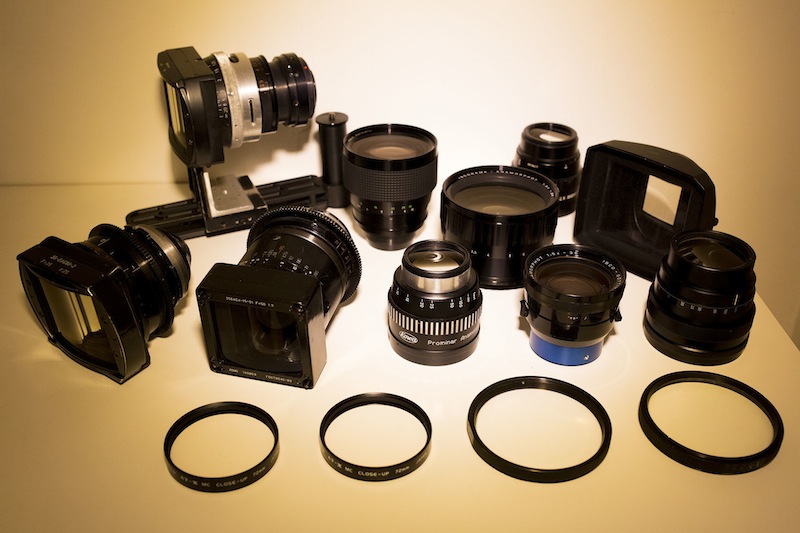Quote from: Midphase on March 06, 2014, 10:04:12 AM
You post IMHO exemplifies a key misunderstanding and gap between the guys who are coding ML and the guys who are trying to use it.
Speaking as a guy who uses ML and doesn't code it, your posts seem to exemplify a key misunderstanding between someone who thinks he is buying a product from a commercial entity who needs his money to continue operating and someone who realizes that other people have tinkered with something in their spare time and who, out of kindness and a desire to collaborate with others, are now allowing him to download the results of their tinkering. If you don't evangelize or download anything from ML, the project will still do just fine.
Quote from: Midphase on March 06, 2014, 10:04:12 AM
But make no mistake, sheer power without end-user friendliness is doomed from the start. So many programmers believe that just implementing amazing code in all that is needed. This is the critical difference that made Steve Jobs so successful, he understood that the end-user experience is as inherent to a product's success as the product itself.
Don't get me wrong, I don't believe in the need to appease the absolute lowest common denominator, but in the case of ML the situation is very much at the opposite end of that spectrum.
I'll help you with a more apt comparison.
Many years ago, a group of people developed an OS kernel known as Mach. It was a microkernel which attempted to move big chunks of the kernel into user space (among other things, but that'll be a lot of reading - if you're interested, wikipedia has a nice write-up http://en.wikipedia.org/wiki/Mach_(kernel)#Mach_concepts). It was designed as a drop-in replacement for the traditional Unix kernel.
When Steve Jobs left Apple for NeXT, they needed an operating system and after looking around for a bit, they settled on using a Mach kernel with a userland heavily based on BSD, a former academic OS derived from AT&T unix which was developed largely, as the name would imply, at Berkeley, with descendants still available today (FreeBSD, NetBSD, OpenBSD, etc). At NeXT, they developed a number of graphical abstractions on top of Unix.
When Apple acquired NeXT to bring Steve Jobs back, he brought NeXTStep with him and it was retooled to become one of the early versions of OSX.
In this example, Magic Lantern would probably be most similar to the BSD userland or Mach microkernel. They're powerful tools in the right hands and thanks to their inclusion in OSX, they are running on most desktop computers in the world.
BSD was not built as a commercial product. It was built by hackers who wanted something to make their own lives better and who were kind enough to share it with others to make their lives better too. Thanks to the work of those wonderful hippie nerds in the 70's, you may enjoy a Mac today which isn't running a derivative of OS9.
Quote from: Midphase on March 06, 2014, 10:04:12 AM
But the reality of the situation is that ML exists on borrowed time and in about two years' time nobody will want to shoot video on DSLR's because there will be absolutely no reason to do so (and that's me being optimistic). There are other massive disruptive forces that are causing a rapid shift in how people shoot video. I live and breathe this industry on a daily basis in a town that fancies itself the World capital of film production. I am constantly interacting with cinematographers and editors, and believe me, when I show them a command-line solution they laugh in my face at the absurdity of it. So yes this is only my opinion, but an opinion shared by just about every single professional that I've interacted with for the better part of last year.
Two years, huh? Looking at the progress that has been made by Canon with their cameras in the last 2 years, I can TOTALLY see why you'd extrapolate that in 2 more years, they'd be obsoleting the current crop. They just released... what, like the 5th consumer camera in a row using almost exactly the same body as the last 4 and pretty much the same sensor as the 7D had when it was released in 2009? Their least expensive raw-capable video camera is in the 5 digits price range now and 2 years ago, it was in the... 5 digits range. Every camera being released by a major vendor now is still using some form of h.264/avchd/mp4 video, the same as 2 years ago. Canon's already mentioned how many new camera bodies they're releasing in 2014. It's not a large number. So... whose cameras, exactly, do you think are going to unseat the major vendors? Black Magic are small and feature-poor still. Digital Bolex finally shipped something, but their longer-term prospects seem iffy at best.
Quote from: Midphase on March 06, 2014, 10:04:12 AM
I appreciate your time and passion, I really do; and I sincerely hope that my posts aren't coming across as too snarky or negative...because in truth if we could hang and discuss this over a couple of drinks I'm sure we'd come to like one another!
Sure. I'm sure the developers would love to sit down for drinks with some whiny Internet user who rants at length about everything he thinks they're doing wrong and how difficult he finds their software. Who wouldn't want that?





